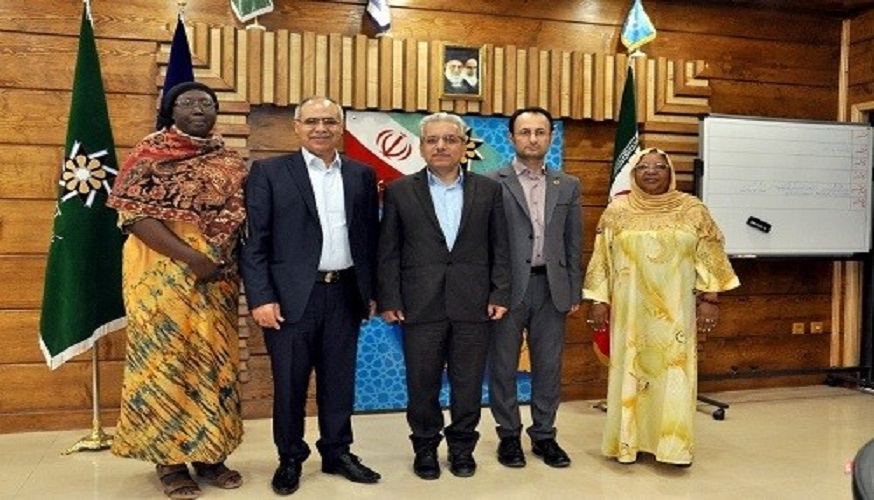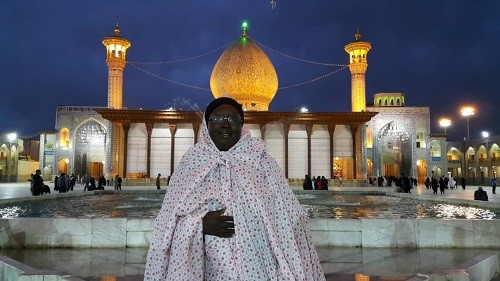Ugandan Secretary General of ISESCO National Commission visits ISC Presidential Committee
The two-day meeting of secretaries general of National Commissions of ISESCO which was carried out by wide-ranging cooperation of the Ministry of Education, ISESCO National Commission in Islamic Republic of Iran, ISESCO Regional Office in Tehran, and ISC, was hosted by ISC on Nov. 11th and 12th in Shiraz.

Dr. Rosie Aguie, from Uganda (The first person on the left)
Dr. Rosie Aguie, the Ugandan secretary-general of ISESCO National Commission had a meeting with ISC and RICeST dean in which common grounds of cooperation was discussed. The attending members of this meeting were Dr. Dehghani, ISC and RICeST dean, Dr. Falahati, dean of ISC Office of International Scientific Cooperation, and Dr. Rosie Aguie, the Ugandan secretary-general of ISESCO National Commission.
At the beginning of this visit Dr. Rosie Aguie appreciated the organizers of the meeting, especially ISC for great hospitality, convenience and city tours for the guests, and transmitted warm greetings of Ugandan government and nation to Iranian government and nation.
She remarked the vast potentials for cooperation of ISC and higher education institutions of Uganda and said: “I believe that ISC can offer several services including scientific journals, observing science production, and universities ranking to our country. It is my pleasure that I can act as a communication loop and I will eagerly try to establish and consolidate relations between two countries.”
She continued by introducing higher education of Uganda briefly: “We have two major universities in Uganda; Islamic University in Uganda, and Kampala International University. Islamic University in Uganda was established in 1988 by OIC, following a memorandum of understanding signed with government of Uganda. In 1990, the parliament of Uganda approved the establishment of this university officially. This university started with two majors and 80 students, but currently there are 72 majors, and 8,700 students from 21 countries are studying there.”
Dr. Aguie explained about Kampala International University: “It includes 4 faculties which have been active for 20 years. Eighty-six percent of the students are local and the rest are from other countries. More than 60% of the students are male students, and around 40% are female students.”
Afterwards, she asked about the ways in which ISC can help Uganda improve the level of research, especially in universities of the country.
Expressing his satisfaction with Dr. Rosie Aguie’s fulfilment of staying in Shiraz and ISC’s hosting, Dr. Dehghani expressed interest in any kind of support for Ugandan universities and higher education institutions and explained about the ways to go for it: “We can make Ugandan universities have access to the wide range of data in ISC which helps them get informed about the status of Islamic countries in science production.”
He continued: “ISC can hold workshops to enhance the efficiency of research according to the needs of countries. Once we get applications for these workshops, we will plan to hold such workshops in Uganda.”
Finally, regarding the fact that ISC has a scientific and international nature, Dehghani referred to ISC as a database which can strengthen the ties between Islamic countries.
It is worth mentioning that Dr. Rosie Aguie was the last guest of the meeting who left Shiraz. She could visit different places in Shiraz which were not included in the group tour. She visited Shah Cheragh’s shrine which was very soothing and she will never forget its spiritual atmosphere.

